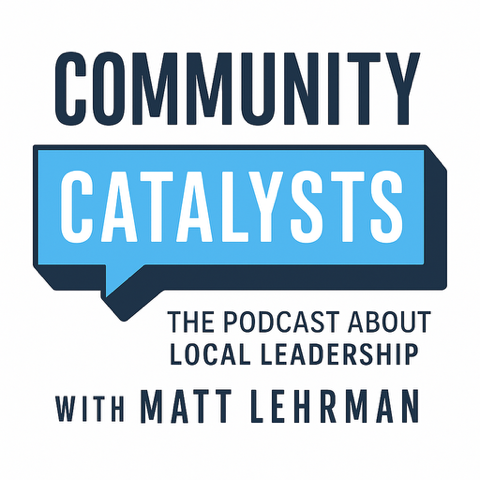Unreasonable is Un-American
Building Bridges in Divided Communities

In today’s politically charged environment, the challenge of dealing with unreasonable people often dominates civic discussions. Whether fueled by obstinance (despite reason), demagoguery or inflammatory behavior (without reason), dogmatism (before reason), or undermining tactics (against reason), such behavior can paralyze a community’s progress. However, these challenges should not rest solely on the shoulders of elected, appointed, and staff municipal leaders. Instead, fostering unity and overcoming division requires the active participation of all citizens.
To address the pressing issues that divide us, communities must embrace a shared commitment to building bridges. This involves creating spaces for meaningful community dialogue and finding solutions that reflect collective values and goals. Let’s explore how unreasonable behavior impacts communities and outline strategies for counteracting it—together.
Recognizing the Problem: Why Unreasonable Behavior Divides Communities
At its core, unreasonable behavior erodes trust and civility. Whether it manifests as stubbornness in public meetings or inflammatory rhetoric on social media, it chips away at the foundation of respectful dialogue. In politically polarized communities, these tendencies can create echo chambers where different perspectives are dismissed outright, stifling collaboration.
Unreasonable is un-American.
The United States was built on the principles of discourse, debate, and compromise. While we may not always agree, our strength as a nation lies in our ability to find common ground. When individuals reject these principles—be it through name-calling, spreading misinformation, or refusing to engage in constructive discussions—they undermine the very fabric of democracy. This makes it imperative for all members of the community to step up and counteract these tendencies.
The Role of Citizens in Fostering Unity
While municipal leaders often serve as the face of conflict resolution, real change starts with everyday citizens. Last fall, I sat down with
Town Councilmember Jim Torgeson of Gilbert, Arizona for an episode of
Community Catalysts podcast. Known for his steadfast conservative principles, Torgeson shares how he navigates the tension between his commitment to conservative values and the demonstrated needs of his community. He reflects on recent difficult choices where he had to prioritize the greater good of his community over personal and political beliefs.
Here’s how communities can take collective responsibility for overcoming division:
1. Engage in Active Listening - Fostering unity begins with understanding. When faced with someone who appears unreasonable, it’s easy to dismiss them. Instead, practice active listening. Ask clarifying questions and seek to understand their concerns, even if you disagree. This doesn’t mean conceding to irrationality—it means creating a foundation for dialogue that builds trust.
2. Promote Values-Based Conversations - Divisive rhetoric often stems from a lack of shared vision. Communities like Cavalier, North Dakota, have demonstrated the power of committing to a shared set of civic values. By focusing on what unites rather than divides, citizens can steer discussions away from blame and name-calling and toward solutions that benefit everyone.
For example, instead of framing debates around partisan ideals, anchor discussions in universal values like fairness, safety, and prosperity. When participants see that their goals align with others, they’re more likely to engage constructively.
3. Call Out Demagoguery Without Escalating Tensions - Inflammatory behavior thrives on attention. When leaders or citizens resort to demagoguery, it’s essential to address it calmly and firmly. Use phrases like, “Let’s focus on solutions,” or, “How does this contribute to our shared goals?” to redirect the conversation. By refusing to engage in counterproductive arguments, you set the tone for reasoned dialogue.
4. Model Civility - Actions speak louder than words. By modeling civility in your interactions, you demonstrate how disagreements can be handled respectfully. This approach not only defuses tensions but also inspires others to follow suit. Leaders and citizens alike should strive to be exemplars of constructive engagement, showing that disagreement doesn’t have to mean discord.
5. Collaborate Across Divides - Collaboration is the ultimate antidote to division. Seek opportunities to work with people who hold different viewpoints. Whether through joint volunteer efforts, community forums, or informal gatherings, these interactions humanize opposing perspectives. They also build the trust necessary to tackle larger issues collaboratively.
Practical Strategies for Overcoming Division In Your Community
While these principles are important, actionable steps are key to creating lasting change. Here are some specific initiatives communities can adopt to overcome division:
- Host Community Dialogues: Organize regular forums where residents can discuss pressing issues in a moderated environment. Ensure diverse representation and establish ground rules for respectful conversation.
- Create Shared Vision Statements: Work together to draft a community vision statement that reflects collective values and priorities. Use this document as a guidepost for decision-making and conflict resolution.
- Implement Civility Pledges: Encourage residents and leaders to sign a civility pledge, committing to respectful dialogue and constructive behavior.
- Leverage Local Media: Use local newspapers, radio, and social media platforms to share stories of collaboration and progress. Highlight examples of individuals or groups working together to solve problems.
The Path Forward: Unity Through Shared Responsibility
When addressing unreasonable behavior, the stakes are too high to rely solely on municipal leaders. Every citizen has a role to play in fostering unity and overcoming division. By practicing active listening, promoting values-based conversations, and modeling civility, communities can counteract the forces that threaten to divide them.
Building bridges isn’t just an ideal—it’s a necessity. To move forward, we must reject the false dichotomy of “us versus them” and embrace the shared responsibility of creating a better future. This means recognizing that “unreasonable is un-American” and committing to the hard work of collaboration. Together, we can ensure that our communities remain places of hope, opportunity, and connection for generations to come.



